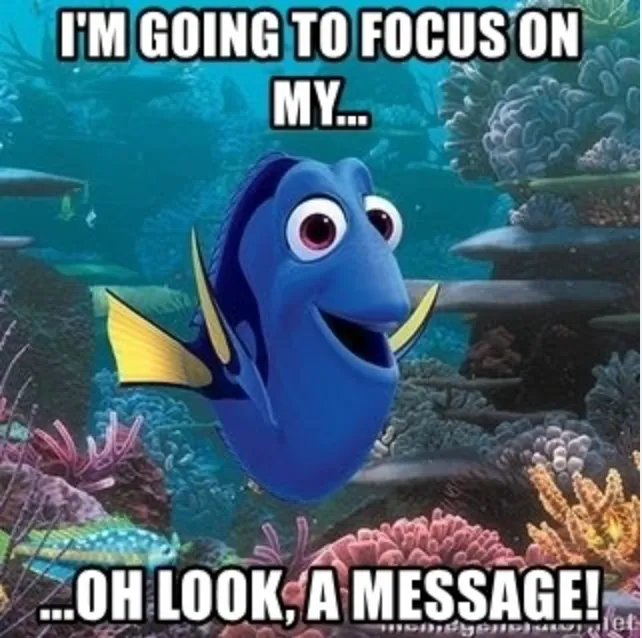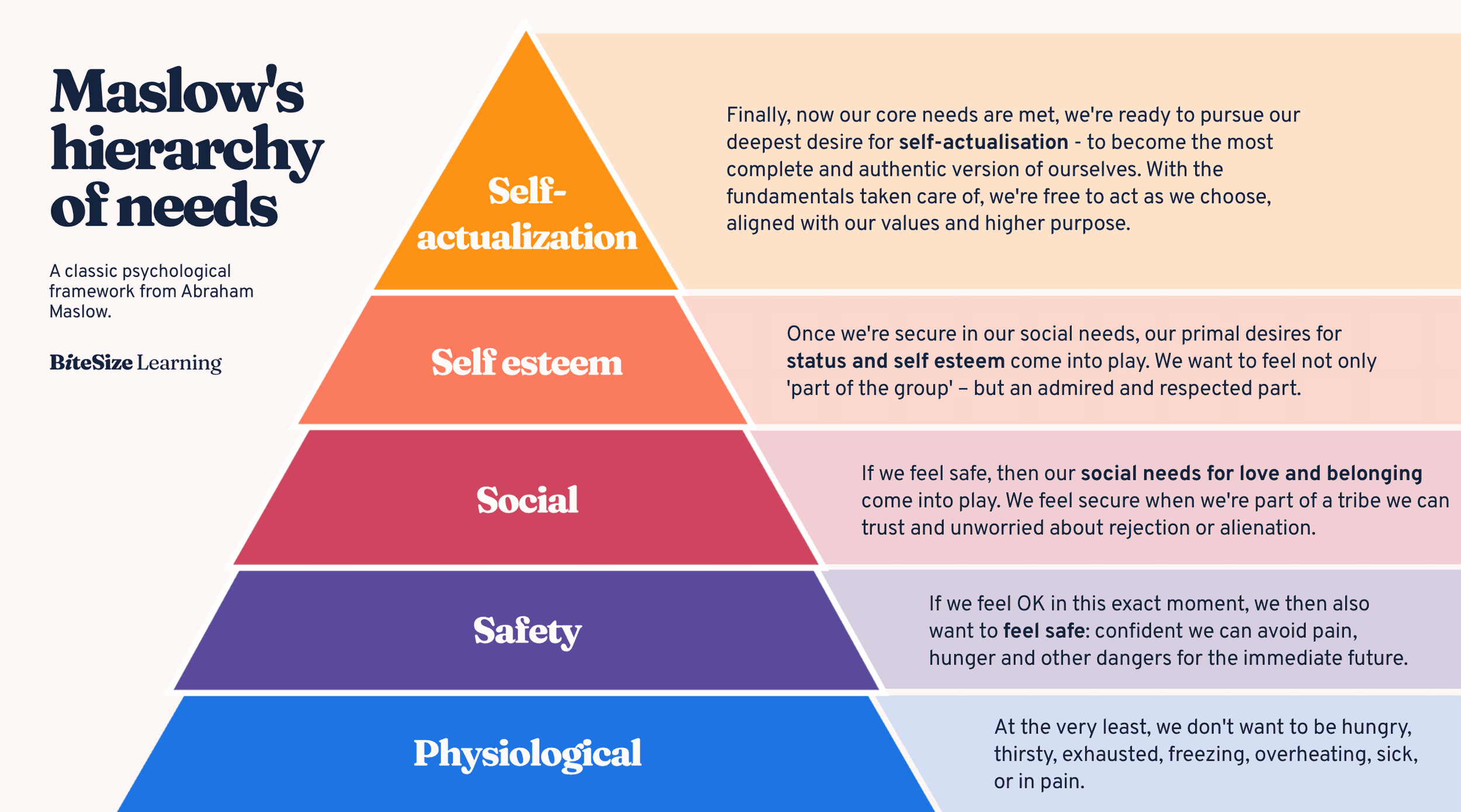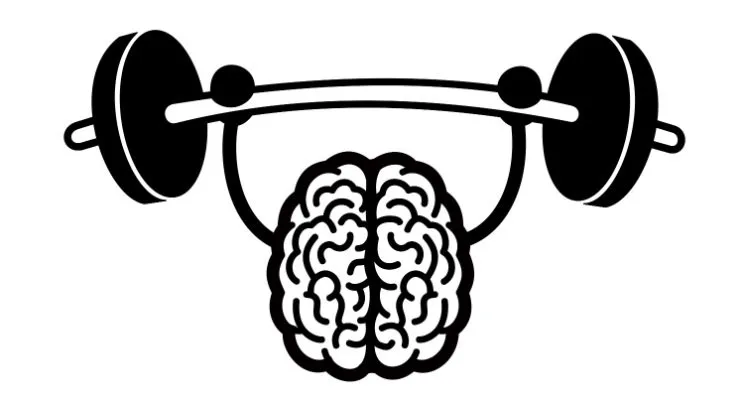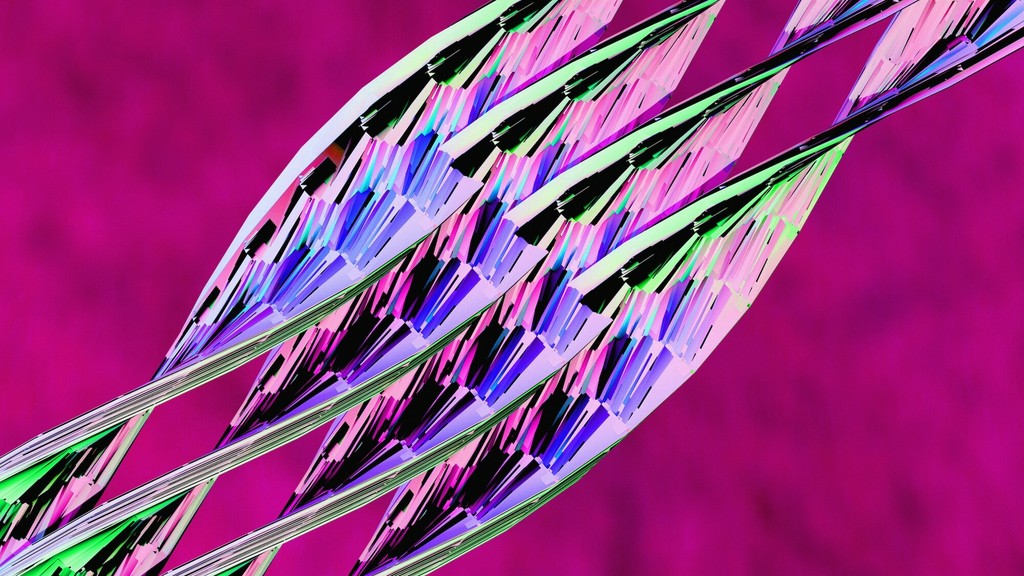How to Get Your Brain to Focus?
Why has it never been so hard to concentrate? Staying focused might be the biggest challenge faced by knowledge workers today. The first reason: for the past 20 years, tech giants have been investing astronomical sums to create addictive mechanisms that capture your attention as much as possible.
Understand
Jan 13, 2025
8 min



When attention is captured, distraction follows.
These companies and their weapon of choice, the smartphone, create a sophisticated paradigm that interrupts and demands our attention constantly.
Result? we are constantly in a state of alertness and mental agitation.
We’ve developed a Pavlovian reflex that makes us react instantly to every notification, every stimulus. Moreover, even without external stimuli, our minds are always on high alert.
The brain has gotten used to this distracting escape whenever calmness or boredom creeps in.
You guessed it; this pattern is not fertile ground for concentration. It’s a vicious cycle: the more you train your brain to be distracted, the more your capacity to concentrate erodes.
It works like a muscle.
And when that muscle is “damaged,” it directly impacts your work. It’s challenging to focus on one thing because:
You open another tab to escape a somewhat complex task.
You instinctively check social media and end up staying longer than planned.
You can’t help but look at your notifications.

The second reason: the work environment is increasingly distracting. This is due to numerous digital demands (emails, video meetings, internal messaging…).
68% of workers report not having enough uninterrupted concentration time during their workday, according to a study conducted in 2023 by Microsoft. We sacrifice what’s essential on the altar of urgency.
Open-plan offices, far from fostering concentration, condition employees to frequently dilute their productivity. The result is that because of these interruption-filled days, an unpleasant feeling emerges.
Being busy all day, feeling mentally drained, without truly feeling that you’ve accomplished something significant.
This is precisely where the concept of deep work makes sense (forgive me in advance for this English term I will use throughout the edition).
Cal Newport defines two specific types of work in his book 👇
Deep work: complex tasks performed in a state of distraction-free concentration that push cognitive abilities to their limits.These efforts create value, enhance your skills, and are difficult to replicate.
Shallow work: non-demanding cognitive tasks that require little attention. These efforts tend not to create much value and are easy to reproduce.
A simple yet powerful distinction.
Cal Newport defines the current paradox: deep work is becoming increasingly rare, but also increasingly valuable. 💎
Internal and external distractions make finding the physical and mental space for deep work sessions a real challenge.
Moreover, according to the Anatomy of Work 2023, employees spend 58% of their workday on “work for work” tasks, which correspond to shallow work.
These tasks are necessary but insufficient for the proper development of a worker. The phenomenon of digital presenteeism (“showing” that we are connected or working) symbolizes this mechanism that is anything but conducive to deep work.
Concentration cannot occur when we are constantly connected and/or stimulated. Yet, as we will see, deep work is what makes work substantial and fulfilling.
When attention is captured, distraction follows.
These companies and their weapon of choice, the smartphone, create a sophisticated paradigm that interrupts and demands our attention constantly.
Result? we are constantly in a state of alertness and mental agitation.
We’ve developed a Pavlovian reflex that makes us react instantly to every notification, every stimulus. Moreover, even without external stimuli, our minds are always on high alert.
The brain has gotten used to this distracting escape whenever calmness or boredom creeps in.
You guessed it; this pattern is not fertile ground for concentration. It’s a vicious cycle: the more you train your brain to be distracted, the more your capacity to concentrate erodes.
It works like a muscle.
And when that muscle is “damaged,” it directly impacts your work. It’s challenging to focus on one thing because:
You open another tab to escape a somewhat complex task.
You instinctively check social media and end up staying longer than planned.
You can’t help but look at your notifications.

The second reason: the work environment is increasingly distracting. This is due to numerous digital demands (emails, video meetings, internal messaging…).
68% of workers report not having enough uninterrupted concentration time during their workday, according to a study conducted in 2023 by Microsoft. We sacrifice what’s essential on the altar of urgency.
Open-plan offices, far from fostering concentration, condition employees to frequently dilute their productivity. The result is that because of these interruption-filled days, an unpleasant feeling emerges.
Being busy all day, feeling mentally drained, without truly feeling that you’ve accomplished something significant.
This is precisely where the concept of deep work makes sense (forgive me in advance for this English term I will use throughout the edition).
Cal Newport defines two specific types of work in his book 👇
Deep work: complex tasks performed in a state of distraction-free concentration that push cognitive abilities to their limits.These efforts create value, enhance your skills, and are difficult to replicate.
Shallow work: non-demanding cognitive tasks that require little attention. These efforts tend not to create much value and are easy to reproduce.
A simple yet powerful distinction.
Cal Newport defines the current paradox: deep work is becoming increasingly rare, but also increasingly valuable. 💎
Internal and external distractions make finding the physical and mental space for deep work sessions a real challenge.
Moreover, according to the Anatomy of Work 2023, employees spend 58% of their workday on “work for work” tasks, which correspond to shallow work.
These tasks are necessary but insufficient for the proper development of a worker. The phenomenon of digital presenteeism (“showing” that we are connected or working) symbolizes this mechanism that is anything but conducive to deep work.
Concentration cannot occur when we are constantly connected and/or stimulated. Yet, as we will see, deep work is what makes work substantial and fulfilling.
When attention is captured, distraction follows.
These companies and their weapon of choice, the smartphone, create a sophisticated paradigm that interrupts and demands our attention constantly.
Result? we are constantly in a state of alertness and mental agitation.
We’ve developed a Pavlovian reflex that makes us react instantly to every notification, every stimulus. Moreover, even without external stimuli, our minds are always on high alert.
The brain has gotten used to this distracting escape whenever calmness or boredom creeps in.
You guessed it; this pattern is not fertile ground for concentration. It’s a vicious cycle: the more you train your brain to be distracted, the more your capacity to concentrate erodes.
It works like a muscle.
And when that muscle is “damaged,” it directly impacts your work. It’s challenging to focus on one thing because:
You open another tab to escape a somewhat complex task.
You instinctively check social media and end up staying longer than planned.
You can’t help but look at your notifications.

The second reason: the work environment is increasingly distracting. This is due to numerous digital demands (emails, video meetings, internal messaging…).
68% of workers report not having enough uninterrupted concentration time during their workday, according to a study conducted in 2023 by Microsoft. We sacrifice what’s essential on the altar of urgency.
Open-plan offices, far from fostering concentration, condition employees to frequently dilute their productivity. The result is that because of these interruption-filled days, an unpleasant feeling emerges.
Being busy all day, feeling mentally drained, without truly feeling that you’ve accomplished something significant.
This is precisely where the concept of deep work makes sense (forgive me in advance for this English term I will use throughout the edition).
Cal Newport defines two specific types of work in his book 👇
Deep work: complex tasks performed in a state of distraction-free concentration that push cognitive abilities to their limits.These efforts create value, enhance your skills, and are difficult to replicate.
Shallow work: non-demanding cognitive tasks that require little attention. These efforts tend not to create much value and are easy to reproduce.
A simple yet powerful distinction.
Cal Newport defines the current paradox: deep work is becoming increasingly rare, but also increasingly valuable. 💎
Internal and external distractions make finding the physical and mental space for deep work sessions a real challenge.
Moreover, according to the Anatomy of Work 2023, employees spend 58% of their workday on “work for work” tasks, which correspond to shallow work.
These tasks are necessary but insufficient for the proper development of a worker. The phenomenon of digital presenteeism (“showing” that we are connected or working) symbolizes this mechanism that is anything but conducive to deep work.
Concentration cannot occur when we are constantly connected and/or stimulated. Yet, as we will see, deep work is what makes work substantial and fulfilling.

Your phone, your rules. Block on command and own your time.
For 30min
Everyday
On weekends
During workhours
From 10 pm to 8 am
For 7 days
All the time

Your phone, your rules. Block on command and own your time.
For 30min
Everyday
On weekends
During workhours
From 10 pm to 8 am
For 7 days
All the time

Your phone, your rules. Block on command and own your time.
For 30min
Everyday
On weekends
During workhours
From 10 pm to 8 am
For 7 days
All the time
☀️ The Benefits of Deep Work
🚂 Work Efficiency
We saw that each interruption leads to a loss of time that far exceeds the duration of the interruption itself. Whether you’re working solo, leading your business, or employed, deep work proves to be an indispensable asset for distinguishing yourself and creating added value.
It’s also a way to accomplish more in less time. This means freeing up more time to relax and recharge your batteries.
With a two-hour deep work session, you can achieve more than in a whole day spent in a state of semi-distraction.
💎 Quality of Work
By focusing your attention exclusively on a task, you make fewer mistakes and give yourself the opportunity to explore the subject in depth, sharpen your thinking, and ultimately boost your creativity.
The equation is simple:
Quality of work produced = Time spent x Intensity of concentration
Without falling into cliché catastrophism, with the explosive arrival of AI, it’s clear that learning to master the art of deep concentration is going to become increasingly fundamental. Being able to accomplish complex tasks and acquire high-value skills.
Cal Newport puts it this way:
“Those who cultivate this ability will thrive while others will struggle to find their place.”
🪷 Well-Being
The sensation of producing deep work is satisfying. The feeling of having fulfilled your duty. The need for accomplishment is at the top of the famous Maslow’s pyramid (the only thing I remember from my business school courses 🤓):

Deep work is an ingredient for feeling better about your job and your life in general. Distraction-filled days are also those that generate stress and anxiety. In contrast, deep work is intimately linked with the idea of flow state.
Flow is characterized by a maximum state of concentration, full engagement, and satisfaction in accomplishing an activity. So, it’s different from deep work: it’s not a discipline but a psychological state.
You’ve probably experienced it, whether in work or another activity. A feeling of total immersion where you lose track of time.
It’s a natural state, but it can be initiated by a session of deep work. Athletes call this “being in the zone.”

It’s a rich experience that gives meaning to your efforts. A moment dedicated to a single task where you feel consistent progress in its completion.
Flow refers to the mental state that can characterize a successful deep work session. This concept was developed by psychologist Mihály Csíkszentmihályi (we’ll come back to this in a future issue).
There is a colossal opportunity cost at the individual level of not freeing up time for deep work and maintaining a healthy relationship with digital to avoid distractions. Protecting periods of intense focus is a true path to well-being at work.
🌊 Protecting and Strengthening Your Concentration
Cal Newport effectively uses the term skill to define deep work, implying that it is something that can be learned and trained. It’s not a button you press.
The more you work on your concentration, the more you’re able to concentrate more often and for longer periods. This requires preparation and, above all, understanding that it’s a journey. It’s mental weight training.

“Many people think that distraction-free concentration is a habit, like flossing – you know how to do it, but you just have to take the time to do it more often. In reality, deep work is a skill to be acquired, something you can’t know how to do unless you practice.” —Cal Newport
To initiate a session of deep work, here are some tips (that work for me). First, it’s about intentionally directing your attention:
Mono-tasking: plan which task (singular) you want to accomplish. A task with high added value. Set everything else aside and focus on that one. Intent is key.
Time-boxing: plan when you will do the task. Favor moments when you know you can concentrate more easily. Also, choose how long. A specific duration of focus is important to create momentum.
The second factor is to design your environment and protect your concentration space.
Put your phone in another room: avoid eye contact.
Turn off notifications on your computer & phone : Slack, Teams, emails.
Close unnecessary tabs: those that won’t directly serve the task.
Put on noise-canceling headphones: to avoid sound disturbances.
Use an app blocker: you can use Jomo for free, available on iPhone, iPad and Mac.
Bonus: if you’ve ever worked in a library or co-working space, you’ve likely experienced the power of social facilitation.
This concept refers to the performance improvement induced by the actual or implied presence of other people. Accountability creates momentum and applies positive pressure. The presence of others helps you start, focus, and finish the task.
It’s like at the gym: if you have one or more “gym buddies,” you tend to push yourself, to go the extra mile that you wouldn’t have done alone.
Having someone or a group that holds you accountable, with whom you will communicate your intentions for your complex tasks, can be super helpful.
Sometimes, it’s interesting to seek extrinsic motivation. It works.
☀️ The Benefits of Deep Work
🚂 Work Efficiency
We saw that each interruption leads to a loss of time that far exceeds the duration of the interruption itself. Whether you’re working solo, leading your business, or employed, deep work proves to be an indispensable asset for distinguishing yourself and creating added value.
It’s also a way to accomplish more in less time. This means freeing up more time to relax and recharge your batteries.
With a two-hour deep work session, you can achieve more than in a whole day spent in a state of semi-distraction.
💎 Quality of Work
By focusing your attention exclusively on a task, you make fewer mistakes and give yourself the opportunity to explore the subject in depth, sharpen your thinking, and ultimately boost your creativity.
The equation is simple:
Quality of work produced = Time spent x Intensity of concentration
Without falling into cliché catastrophism, with the explosive arrival of AI, it’s clear that learning to master the art of deep concentration is going to become increasingly fundamental. Being able to accomplish complex tasks and acquire high-value skills.
Cal Newport puts it this way:
“Those who cultivate this ability will thrive while others will struggle to find their place.”
🪷 Well-Being
The sensation of producing deep work is satisfying. The feeling of having fulfilled your duty. The need for accomplishment is at the top of the famous Maslow’s pyramid (the only thing I remember from my business school courses 🤓):

Deep work is an ingredient for feeling better about your job and your life in general. Distraction-filled days are also those that generate stress and anxiety. In contrast, deep work is intimately linked with the idea of flow state.
Flow is characterized by a maximum state of concentration, full engagement, and satisfaction in accomplishing an activity. So, it’s different from deep work: it’s not a discipline but a psychological state.
You’ve probably experienced it, whether in work or another activity. A feeling of total immersion where you lose track of time.
It’s a natural state, but it can be initiated by a session of deep work. Athletes call this “being in the zone.”

It’s a rich experience that gives meaning to your efforts. A moment dedicated to a single task where you feel consistent progress in its completion.
Flow refers to the mental state that can characterize a successful deep work session. This concept was developed by psychologist Mihály Csíkszentmihályi (we’ll come back to this in a future issue).
There is a colossal opportunity cost at the individual level of not freeing up time for deep work and maintaining a healthy relationship with digital to avoid distractions. Protecting periods of intense focus is a true path to well-being at work.
🌊 Protecting and Strengthening Your Concentration
Cal Newport effectively uses the term skill to define deep work, implying that it is something that can be learned and trained. It’s not a button you press.
The more you work on your concentration, the more you’re able to concentrate more often and for longer periods. This requires preparation and, above all, understanding that it’s a journey. It’s mental weight training.

“Many people think that distraction-free concentration is a habit, like flossing – you know how to do it, but you just have to take the time to do it more often. In reality, deep work is a skill to be acquired, something you can’t know how to do unless you practice.” —Cal Newport
To initiate a session of deep work, here are some tips (that work for me). First, it’s about intentionally directing your attention:
Mono-tasking: plan which task (singular) you want to accomplish. A task with high added value. Set everything else aside and focus on that one. Intent is key.
Time-boxing: plan when you will do the task. Favor moments when you know you can concentrate more easily. Also, choose how long. A specific duration of focus is important to create momentum.
The second factor is to design your environment and protect your concentration space.
Put your phone in another room: avoid eye contact.
Turn off notifications on your computer & phone : Slack, Teams, emails.
Close unnecessary tabs: those that won’t directly serve the task.
Put on noise-canceling headphones: to avoid sound disturbances.
Use an app blocker: you can use Jomo for free, available on iPhone, iPad and Mac.
Bonus: if you’ve ever worked in a library or co-working space, you’ve likely experienced the power of social facilitation.
This concept refers to the performance improvement induced by the actual or implied presence of other people. Accountability creates momentum and applies positive pressure. The presence of others helps you start, focus, and finish the task.
It’s like at the gym: if you have one or more “gym buddies,” you tend to push yourself, to go the extra mile that you wouldn’t have done alone.
Having someone or a group that holds you accountable, with whom you will communicate your intentions for your complex tasks, can be super helpful.
Sometimes, it’s interesting to seek extrinsic motivation. It works.
☀️ The Benefits of Deep Work
🚂 Work Efficiency
We saw that each interruption leads to a loss of time that far exceeds the duration of the interruption itself. Whether you’re working solo, leading your business, or employed, deep work proves to be an indispensable asset for distinguishing yourself and creating added value.
It’s also a way to accomplish more in less time. This means freeing up more time to relax and recharge your batteries.
With a two-hour deep work session, you can achieve more than in a whole day spent in a state of semi-distraction.
💎 Quality of Work
By focusing your attention exclusively on a task, you make fewer mistakes and give yourself the opportunity to explore the subject in depth, sharpen your thinking, and ultimately boost your creativity.
The equation is simple:
Quality of work produced = Time spent x Intensity of concentration
Without falling into cliché catastrophism, with the explosive arrival of AI, it’s clear that learning to master the art of deep concentration is going to become increasingly fundamental. Being able to accomplish complex tasks and acquire high-value skills.
Cal Newport puts it this way:
“Those who cultivate this ability will thrive while others will struggle to find their place.”
🪷 Well-Being
The sensation of producing deep work is satisfying. The feeling of having fulfilled your duty. The need for accomplishment is at the top of the famous Maslow’s pyramid (the only thing I remember from my business school courses 🤓):

Deep work is an ingredient for feeling better about your job and your life in general. Distraction-filled days are also those that generate stress and anxiety. In contrast, deep work is intimately linked with the idea of flow state.
Flow is characterized by a maximum state of concentration, full engagement, and satisfaction in accomplishing an activity. So, it’s different from deep work: it’s not a discipline but a psychological state.
You’ve probably experienced it, whether in work or another activity. A feeling of total immersion where you lose track of time.
It’s a natural state, but it can be initiated by a session of deep work. Athletes call this “being in the zone.”

It’s a rich experience that gives meaning to your efforts. A moment dedicated to a single task where you feel consistent progress in its completion.
Flow refers to the mental state that can characterize a successful deep work session. This concept was developed by psychologist Mihály Csíkszentmihályi (we’ll come back to this in a future issue).
There is a colossal opportunity cost at the individual level of not freeing up time for deep work and maintaining a healthy relationship with digital to avoid distractions. Protecting periods of intense focus is a true path to well-being at work.
🌊 Protecting and Strengthening Your Concentration
Cal Newport effectively uses the term skill to define deep work, implying that it is something that can be learned and trained. It’s not a button you press.
The more you work on your concentration, the more you’re able to concentrate more often and for longer periods. This requires preparation and, above all, understanding that it’s a journey. It’s mental weight training.

“Many people think that distraction-free concentration is a habit, like flossing – you know how to do it, but you just have to take the time to do it more often. In reality, deep work is a skill to be acquired, something you can’t know how to do unless you practice.” —Cal Newport
To initiate a session of deep work, here are some tips (that work for me). First, it’s about intentionally directing your attention:
Mono-tasking: plan which task (singular) you want to accomplish. A task with high added value. Set everything else aside and focus on that one. Intent is key.
Time-boxing: plan when you will do the task. Favor moments when you know you can concentrate more easily. Also, choose how long. A specific duration of focus is important to create momentum.
The second factor is to design your environment and protect your concentration space.
Put your phone in another room: avoid eye contact.
Turn off notifications on your computer & phone : Slack, Teams, emails.
Close unnecessary tabs: those that won’t directly serve the task.
Put on noise-canceling headphones: to avoid sound disturbances.
Use an app blocker: you can use Jomo for free, available on iPhone, iPad and Mac.
Bonus: if you’ve ever worked in a library or co-working space, you’ve likely experienced the power of social facilitation.
This concept refers to the performance improvement induced by the actual or implied presence of other people. Accountability creates momentum and applies positive pressure. The presence of others helps you start, focus, and finish the task.
It’s like at the gym: if you have one or more “gym buddies,” you tend to push yourself, to go the extra mile that you wouldn’t have done alone.
Having someone or a group that holds you accountable, with whom you will communicate your intentions for your complex tasks, can be super helpful.
Sometimes, it’s interesting to seek extrinsic motivation. It works.
© Credits
This article is a revised version of Edition #10 of the Screenbreak newsletter created by Julien Rousset. With his permission, we're sharing this high-quality content with you today! So many thanks to Julien. 😌
Photographies by Unsplash, ScreenBreak and the Internet.
[1] Newport - Deep work: Retrouver la concentration dans un monde de distractions, 2017.
[2] Microsoft’s 2023 Work Trend Index Report reveals impact of digital debt on innovation, emphasizes need for AI proficiency for every employee, Microsoft, 2023.
[3] Deep work et flow state à l'ère du travail à distance, SocraticDev, 2022.
[4] MacNeil - Le travail en profondeur, mode d’emploi : 7 astuces pour gagner en concentration, Asana, 2024.
[5] Deep Work: Comment se concentrer dans un monde distrait, Everlaab.
[6] Cuncic - How Social Facilitation Can Improve Your Performance, Verywellmind, 2023.
[7] What is deep work? Your easy-to-digest guide, Flown.
[8] Kristy - Why your hybrid team needs Digital Guardrails.
[9] The future of work: How to deep work, unwind & embrace boredom, The Doctor's Kitchen, 2022.
Continue reading
Continue reading
The Joy Of Missing Out

Crafted in Europe
All rights reserved to Jomo SAS, 2026
The Joy Of Missing Out

Crafted in Europe
All rights reserved to Jomo SAS, 2026
The Joy Of Missing Out

Crafted in Europe
All rights reserved to Jomo SAS, 2026


